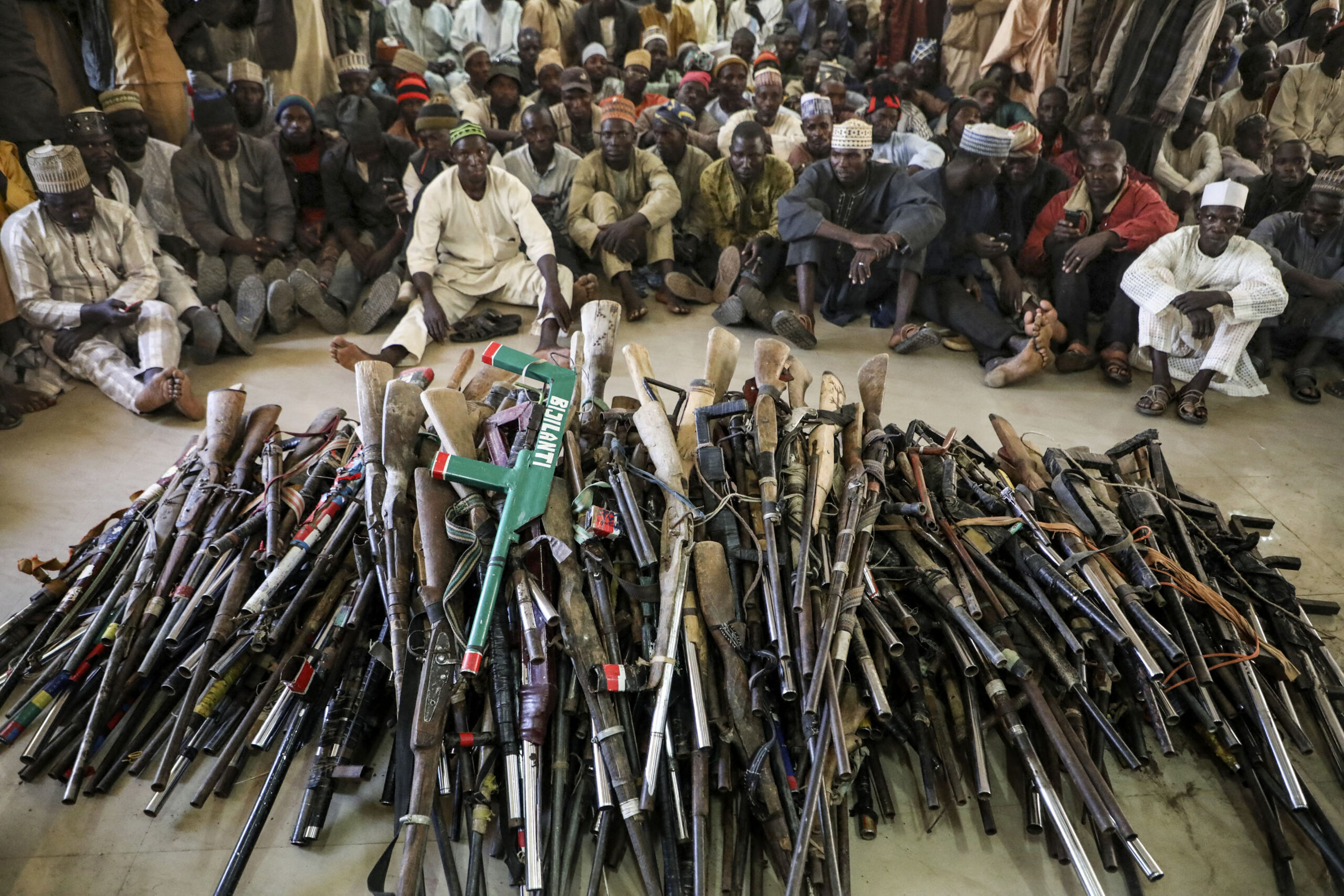In its last Global Organised Crime Index report, the Global Initiative Against Transnational Organised Crime released ranked Nigeria as fifth. Within that period, the country spent $4.5 billion on the military in 2021, expended $3.1 billion in 2022, and budgeted N1.55 trillion in 2023. Now, Nigeria sits sixth in the organised crime league, a place higher, and with a lot of money expended.
Organised crimes are continuing criminal enterprises that rationally work to profit from illicit activities that are often in great public demand. Their continued existence is maintained through the corruption of public officials and the use of intimidation, threats, or force to protect their operations.
When Zubairu Abdulra’uf cried out that they pay 400 million naira to organised crime gang leaders before they could do their farming in Kaduna state, some Nigerians thought it was an exaggeration. But considering that it has now been established that these illicit acts even affect the government’s resources and its ability to enhance the people’s welfare, basic needs and living standard, there is a need to think of another way to address it.
Agreed that there have been social, political, and technological changes in Nigeria bringing about divergent opportunities, organised crimes seem to be inundated for the country’s security forces to handle.
The ripple effect is that many Nigerians who could have become resourceful for the country’s national resurgence lose their lives unexpectedly. It is worthy of note that one would not know the extent of this persistent, organised criminality and the failure in the deliberate throwing of money to allay the challenge if one were not directly linked to the casualties of organised crimes in the country.
When you hear that between 2021 and 2022, when Nigeria climbed up by a spot in the organised crime ranking, 21,641 people died not because they were sick but because they fatally lost their lives to the anomaly of organised crimes.
Money is important, but re-orientation is more important
Oladele Oseni, a criminologist and security expert based in France, told Prime Progress that the latest ranking brings about a point of sombre reflection for every Nigerian, considering that innocent Nigerians, the country’s global reputation, and women and children have suffered significantly from this increase.
“Organised crime is like inflation. We can’t keep it at zero, but we have to minimise it. It can’t stay zero percent because we live in a world where perpetrators of crime are not sleeping. So, we are required to match them,” he said.
But the country has been going on with tackling organised crime the wrong way, in his view. What the government is supposed to do is instil a sense of ownership of the country in every Nigerian.
“If you know you own something, it will take a brutal sense of mediocrity to harm it. We have a leadership that has made Nigerians believe that the country is working for them (the leaders) and not for everyone”.
To put organised crime to bed, he believes that more energy needs to be channelled to the National Orientation Agency or NOA than even the security system. He said their job would be to instil such an orientation as the “God bless America” ideology in many Nigerians.
“We have pumped in money, and it didn’t seem to work. Let’s pump in efforts and orientation,” he advised.
It is safe to say that many Nigerians are aggrieved. A BBC documentary in 2022 revealed that some Nigerians who have turned banditry into a legacy saw the kidnapping of schoolgirls as a subtle way of getting back at the government, which has failed to be responsible for their needs or give them a sense of ownership and belonging that they both own the country.
Oseni thinks it is ineffectual to state that the fix to organised crime in Nigeria is good governance because organised crime also torments developed countries, but in countries with less criminality, citizens don’t find committing crime attractive because it has become a widely held view that they all own the country. So, the government should invest more money in the coming year in national orientation and cultivate national values in every Nigerian, regardless of education or social status, to be better in the next ranking
In the latest Global Organised Crime Index report by the Global Initiative Against Transnational Organised Crime, Nigeria ranked sixth globally and second in Africa, reflecting a worsening situation despite significant military expenditures. The country spent $4.5 billion on military in 2021, $3.1 billion in 2022, and budgeted N1.55 trillion in 2023. Organised crime, defined as criminal enterprises that profit from illegal activities often through corruption and intimidation, continues to thrive in Nigeria.
For example, farmers in Kaduna state paid 400 million naira to crime gangs to farm, highlighting the severe impact on both individuals and the government's resources. Between 2021 and 2022, over 21,000 people died due to organised crimes. Despite technological, social, and political changes, Nigeria’s security forces struggle to handle the burgeoning crime wave.
Oladele Oseni, a criminologist, suggests that while military spending is important, a greater focus on national re-orientation is needed. He argues that instilling a sense of ownership and national values in citizens is crucial to tackling organised crime effectively, as seen in countries where citizens feel a collective responsibility towards their nation. This approach involves empowering the National Orientation Agency (NOA) to foster a stronger national identity and civic pride, which could be more effective than merely increasing security funding.
Additionally, a BBC documentary in 2022 revealed that some Nigerians turned to banditry as retaliation against a government they felt had failed them, illustrating the deep-seated issues contributing to the crime surge. To combat organised crime and improve future rankings, Oseni emphasizes the need for significant investment in national orientation and cultivating societal values.






